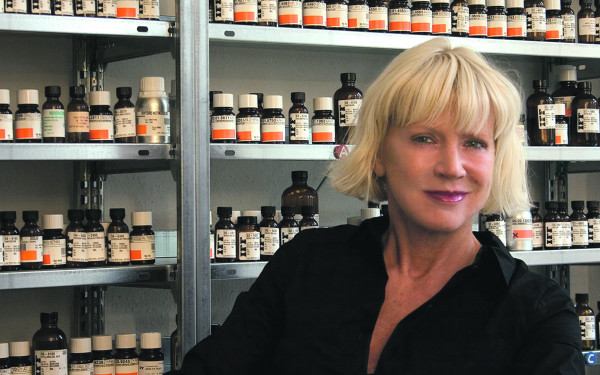Hexagram-Concordia Fuses Art and Engineering
Research Centre Takes Multidisciplinary Approach to Academia
Hexagram just might be Concordia’s best-kept secret.
The multidisciplinary research centre was started over a decade ago by fine arts researchers at Concordia and at the Université du Québec à Montréal, with a focus on research and creation in media art, design and technology, and funded by provincial and federal grants.
Its team-based, cross-departmental research format has been growing ever since.
And compared to other multidisciplinary initiatives now being seen across the country, it’s ahead of the curve.
“We have set an example of this kind of thinking early on, before ‘multidisciplinary’ became a brand or buzzword,” said Christopher Salter, a design and computation arts professor and Director of Hexagram-Concordia.
“The questions are so complex that no one person, no one discipline can answer them.”
Hexagram is in the process of applying for its next six years of funding from the provincial government. Working under Hexagram gives researchers access to state-of-the-art technology that is often required to do their research.
While the initiative started in fine arts, it has now expanded to arts and science, and slowly into the engineering and computer science faculties as well. The interest of social scientists and engineers in the work Hexagram is doing shows just how the domain of digital technology has expanded.
“The topics have shifted from computation as a medium to questions of liveliness. There are big debates now about getting away from a purely human-centric worldview […] The question of how bodies are affected by new technology,” said Salter.
“In the ‘80s, people were trying to escape the body, trying to design virtual reality,” he continued. “But now people are getting into mixed reality, where computation is embedded in things like the desk or the floors, embedded in the physical structure of the world around us.”
Salter says Hexagram connects researchers globally, with Concordia and UQÀM acting as “antennas” for this kind of work. Dozens of professors and nearly 300 graduate students are working under Hexagram-Concordia, which will also be hosting several speakers and workshops this year under the theme “Speculative Futures.”
Hexagram’s first speaker event is Sept. 27, featuring Renée Green, professor and director of the Art, Culture and Technology at MIT. Find out more at hexagram.concordia.ca

_900_355_90.jpg)



_1_600_375_90_s_c1.jpg)

